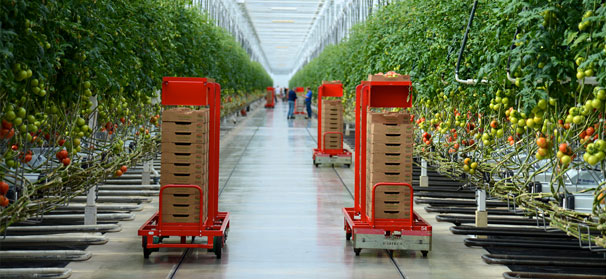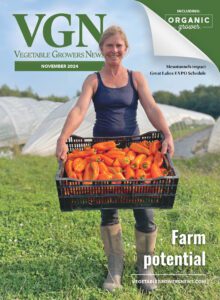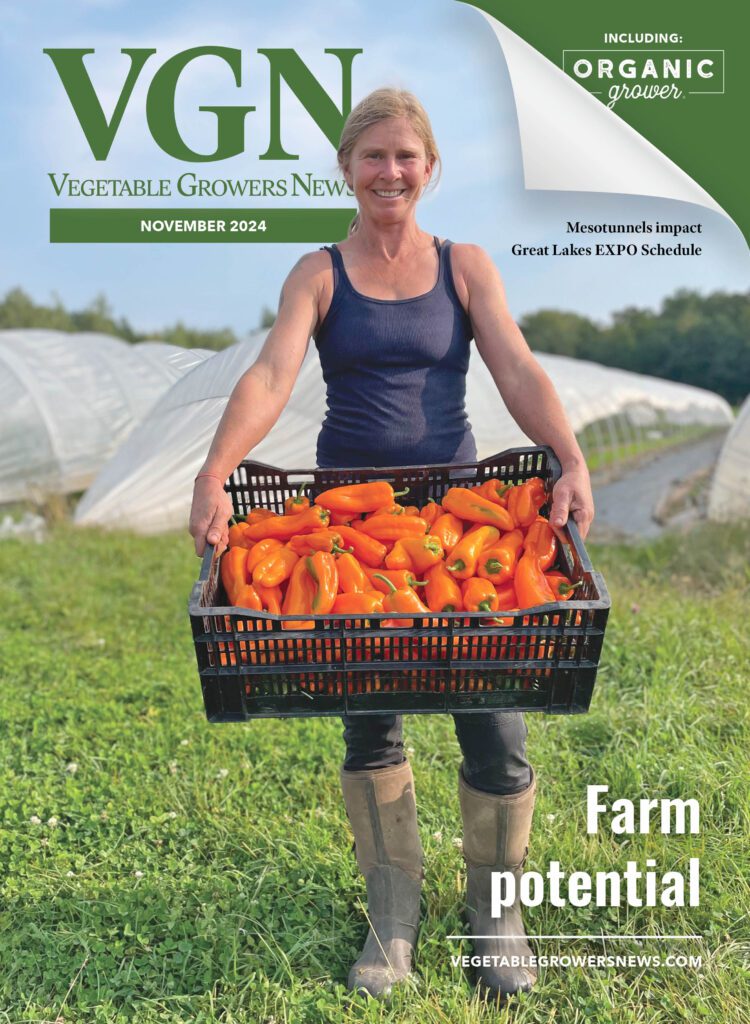
Apr 22, 2013Greenhouse helps retailer sell local tomatoes year round
A Canadian produce company is helping a Michigan-based grocery chain offer fresh, vine-ripened, local tomatoes year round.
Mastronardi Produce, based in Kingsville, Ontario, completed a 30-acre hydroponic greenhouse facility in Coldwater, Mich., in December 2011. That new facility is helping Meijer, based in Walker, Mich., expand its local produce offerings.
“This is really unique and exciting, because Meijer customers can purchase locally grown tomatoes in the winter, which is well beyond Michigan’s traditional tomato growing season,” said Jerry Suter, vice president of fresh for Meijer.
Michigan’s tomato season is typically late July to October, but the grow lights, water filtration systems, alternative energy sources and other state-of-the-art technology of the
Coldwater facility, the first of its kind in the Midwest, ensures optimal growing conditions all year. The first tomatoes from the facility shipped to Meijer in March 2012, according to the retailer.
“We’re proud to give Meijer customers what they’d been missing: fresh, vine-ripened, Michigan-grown tomatoes in the winter,” said Paul Mastronardi, president of Mastronardi Produce. “Meijer is one of our oldest customers in the USA, and has been a great partner for over 40 years. We have collaborated on many new items and projects like this. We talked a few years back about our idea of the Coldwater greenhouse project, and Meijer was on board before we built.”
Mastronardi Produce plans to double the Coldwater facility’s acreage over the next two years, according to Meijer.
In addition to the facility in Michigan, the Canadian producer is expanding its distribution center in Kingsville, which will almost double the size of its headquarters. The 72,000-square-foot expansion is expected to be complete this summer. The company also plans to add 100 acres of greenhouse space in Ontario this year, according to Mastronardi Produce.
“Our gourmet greenhouse tomatoes, peppers, cucumbers and specialty items continue to be in high demand, and with this acreage we will fulfill the needs of our key partners throughout North America,” Paul Mastronardi said. “The new addition also includes automation to improve packing and distribution efficiencies.”
Meijer has always bought products from local suppliers, but the company has expanded that part of its business in the last five years in response to customer requests. The retailer, which has stores in five states, works with more than 100 local growers and businesses today, which represents a 25 percent increase from five years ago. The company’s local segment has an annual economic impact of more than $80 million, according to Meijer.
Meijer also recently announced that it would feature 55 new Michigan-made grocery products in all of its 102 state stores. The items include barbeque sauces, cherry butter, salsas, guacamole and kettle chips.
As for local produce, Meijer is currently the largest purchaser in the markets it serves; local fruit and vegetables account for 30 percent of all produce sold at Meijer stores during the peak season, according to the retailer.














